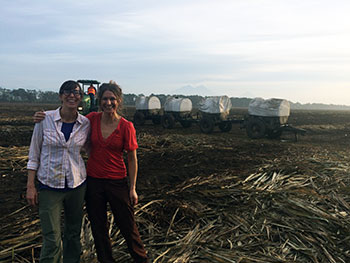New Fellowship Explores Impact of Climate Change
 (April 2019) Cecilia Sorensen, MD, is the inaugural
fellow in the Living
Closer Foundation
Fellowship in Climate
and Health Science
Policy, a collaborative
post-graduate training
program offered
through CU Anschutz,
National Institutes
of Environmental Health Sciences (NIEHS), Centers for Disease Control
(CDC) and the Medical Society Consortium of Climate and Health.
(April 2019) Cecilia Sorensen, MD, is the inaugural
fellow in the Living
Closer Foundation
Fellowship in Climate
and Health Science
Policy, a collaborative
post-graduate training
program offered
through CU Anschutz,
National Institutes
of Environmental Health Sciences (NIEHS), Centers for Disease Control
(CDC) and the Medical Society Consortium of Climate and Health.
The first of its kind in the nation, the fellowship was spearheaded by Jay Lemery, MD, associate professor of emergency medicine and co-author of “Enviromedics: The Impact of Climate Change on Human Health.”
The program, which welcomes its second fellow this summer, received funding from the Denver-based Living Closer Foundation. During the past year, Sorensen has surveyed neighborhoods in Puerto Rico to study the aftermath of Hurricane Maria; made treks to the Syria-Lebanon border to examine the role of environmental change on women’s health; walked through sugar cane fields in Central America where heat stress may be a culprit behind workers’ increasing rates of kidney disease; and attended numerous conferences and board meetings across the nation. Lemery said the threat to human health from climate change — natural disasters such as heat waves, wildfire, hurricanes, and rising oceans as well as increases in vector-borne disease and air-quality degradation — is clearly borne out by science.
However, physicians have been largely absent from the dialogue, and consequently, from the policy decisions that drive meaningful change.